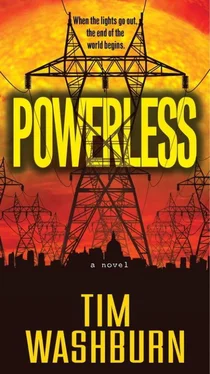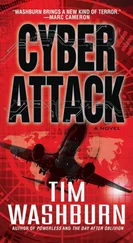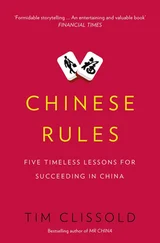He stands, tosses the report on the coffee table, and wanders around the room, trying to bleed off nervous energy. The President’s chief speechwriter hurries into the room again, trying to craft the perfect statement without creating worldwide panic. What’s the point? Alexander thinks as he stops near the window overlooking the Rose Garden. He turns away and continues prowling.
During a lull, Alexander approaches the desk and sits in one of the flanking chairs. President Harris glances up with a perturbed look on his face, “Nothing to do, Scott?”
“No, there’s plenty to do, I guess, but I don’t think strong-arming a senator over a piece of legislation is relevant now.”
President Harris tosses his pen on the desk and leans back in his chair. “Listen, Scott, we don’t know what the hell is going to happen, but we need to continue working. There’s still going to be a government—even if we have to work by candlelight. Regardless of the doomsday prophets, this won’t be the end of the world. Will it be hard? Damn right. Will people suffer? Yes, they will, but we can overcome, Scott. We have to—it’s the only choice we have.”
“I’m more concerned, sir, with the immediate effects of your address to the nation. How the hell are we going to control the reactions of the people? There will be looting, hoarding, and killing from the get-go.”
“What are you suggesting, Scott? That we allow the people to remain blissfully unaware until the moment the storm hits? That’s goddamn irresponsible.”
Scott doesn’t answer as the President stews over his statements. Then, in almost a whisper he says, “Maybe we should. What’s to be gained by telling them in advance? A few gallons of gasoline? A few containers of water, which will go to the first ten or fifteen people in the store? Then what? We might be better off waiting until the playing field is level and no one has electricity.”
The President stands and walks to the large windows.
Scott doesn’t press the issue. While the President stews, he reads, again, the inscription woven into the perimeter of the custom-made carpet: The welfare of each of us is dependent fundamentally upon the welfare of all of us, a quote from Teddy Roosevelt.
President Harris turns from the windows and begins to pace, the limp more evident. The silent reflection is interrupted when Janice Baker enters.
“I’m sorry for intruding, Mr. President, but I wanted to bring you the latest issue we’re facing.” She walks to the front of the desk as President Harris collapses onto his chair.
“What is it, Janice?”
“Sir, we issued the order to ground all flights but some of the transcontinental flights, especially those flying longer routes, never received word.”
The President leans forward in his chair. “Are you saying we still have planes in the air with no way to communicate? Or to navigate?”
“Yes, sir. The FAA is trying to establish contact via high-frequency radio, but no one knows if it will work. If so, they’ll try to land the planes at the closest available airport.”
“Christ, I should have listened to Dr. Blake.”
“Sir, most of these pilots could fly their routes blindfolded, they do it so often.”
“They could when they had radios and navigation. Landing those planes could turn into a disaster in a heartbeat.” He points toward the television screen, where continuing coverage of the collision at the Seattle airport plays in silence. “Hell, those planes were flying short hops and look what happened.”
“Sir, they’ll just have to—”
The intercom buzzes and the President punches the button. “Yes, Barbara?”
“Sir, Director Carter on line one.”
The President puts the call on speakerphone. “Don, I’m with Janice and Scott. All right if I leave it on speaker?”
“That’s fine, Mr. President. They probably need to know what’s happening. And it’s not good, sir. The New Orleans area has had three days of heavy rain. Enough rain that Lake Pontchartrain and the Mississippi River are near their flood stage.”
President Harris leans closer to the phone, resting his elbows on the desk. “Don’t tell me all the new pumps the Corps of Engineers put in aren’t keeping up with all that water.”
“Well, that’s the problem, sir. About half of them seized up when a power surge of some sort hit the system.”
“What are you saying, Don? They don’t have enough pumps?”
“No, sir. They’re working like crazy to replace what they can, but…”
President Harris wipes his brow. “How bad is it going to get, Don?”
A pause on the other end of the line. “If it continues to rain, some parts of the city will experience Katrina-like devastation.”
Durant, Oklahoma
When the ambulance doors slam shut, Zeke darts back into the house to grab the keys to his father’s pickup. After locking up, he steps outside and whistles for Lexi. She races around the side of the house as Zeke opens the door to the pickup. Lexi jumps aboard and he slides behind the wheel. The engine rumbles to life and he slams on the accelerator, leaving a trail of gravel and dust swirling behind them.
Zeke whips the pickup into the short driveway to his home and jumps from the cab. Lexi follows and enters the house when Zeke swings the door open. He tries to explain to her that he’ll be back soon and gives her tummy a quick rub. He locks the door and hurries back to the pickup. After a quick U-turn he steers the truck onto the roadway. The two homes are located a couple of miles south of the main highway leading into Durant. Zeke white-knuckles the wheel as he steers around the larger potholes and shudders over the washboard sections where the asphalt and gravel have given way.
At the highway, he turns east and gooses the pickup up to seventy, hoping like hell a farmer on a tractor doesn’t pull out in front of him. He focuses on his mother and the uncertainty of his father’s health. The worry etched on her face as the ambulance doors closed gnaws on Zeke.
On the outskirts of town, he eases off the gas and slaps his thigh—Ruth needs to know what’s happening. For the second time in one day he wishes he hadn’t turned his back on technology. Zeke makes a left on Route 69 near downtown and drives toward the hospital.
Durant is a small town, home to a little over fifteen thousand people. But it’s the hub of southeastern Oklahoma and home to the largest hospital in the region. He turns off at the hospital exit and slots the pickup in the first available parking spot. The lot is jammed with farm trucks of every size, many with hay spears pointing toward the heavens. Most are covered in a thick layer of gravel dust with slashes of red mud along the fenders. Zeke locks the truck and runs toward the emergency room entrance.
The automatic doors part and he follows the signs to the waiting room, where he finds his mother slumped in a chair. He takes a seat next to her and wraps an arm around her narrow shoulders.
“Do we know anything yet?” he whispers in her ear.
“No. They wheeled him into the emergency room as soon as we arrived.” Her tears have ended, leaving a salty residue on her cheeks.
“Did he say anything in the ambulance?”
She shakes her head.
“Do you want me to call Ruth?” Zeke says.
“Not until we know something. The kids are in school and I don’t want her thinking she needs to rush up here. I think it would be best if we had something more to tell her, don’t you?”
“You’re probably right.” Zeke turns his gaze away from the hurt in her pale green eyes. They sit in silence.
The lights in the waiting room flicker and flash off, only to re-illuminate a moment later.
Читать дальше












